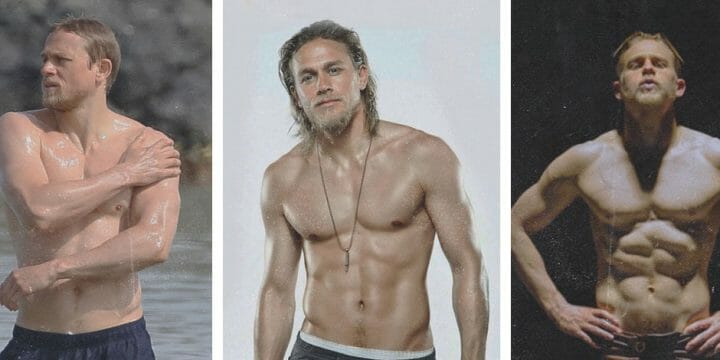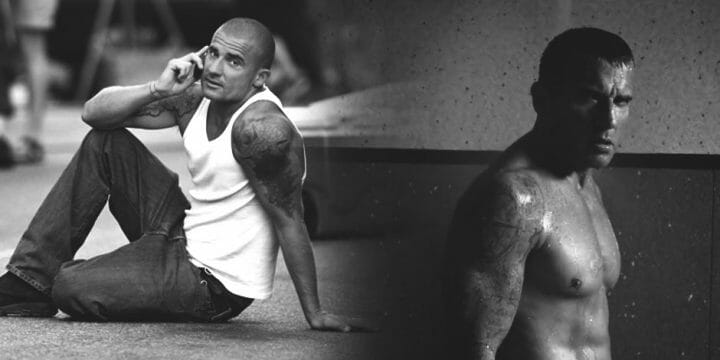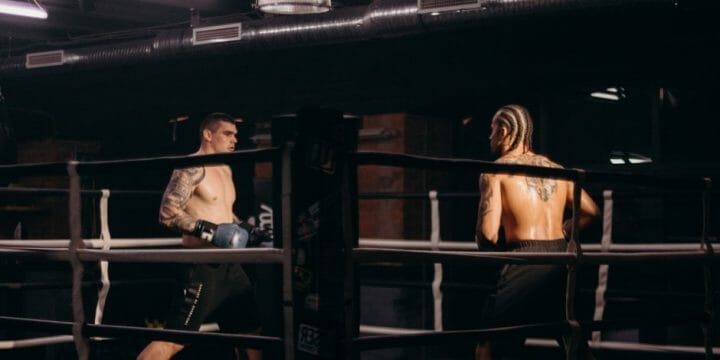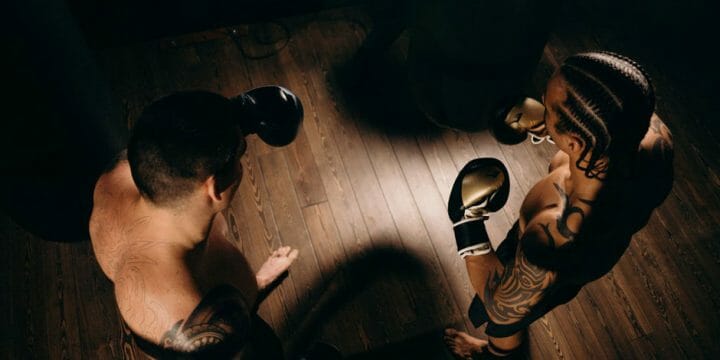Few can replicate the illustrious career of Anthony Joshua, a heavyweight boxing titan who boasts the WBA, IBO, and IBF titles.
As a Certified Professional Trainer, I was impressed by his dedication and discipline, prompting me to research his rigorous workout routine and diet plan.
Do you have what it takes to emulate his training regimen to your own fitness plan?
Read on and find out the secrets behind his lean, muscular physique.
How Does Anthony Joshua Train?
Anthony Joshua trains twice daily and likes to mix up his routines, focusing on cardio, bodyweight exercises, core, and strength work. Here he briefly explained in his own words:
“On a typical training day I will get up at 6.30am and finish training at 8pm. I’ll do running, stretching, and then three gym sessions at about 11.30am, 1.30pm and 5.30pm, so I am usually done by about 8pm. It’s intense but we do get to rest on the weekend.”
- Anthony Joshua
As indicated by my tests, his training sessions emphasize demanding bodyweight resistance and target multiple muscle groups.
View this post on Instagram
He works every muscle from his calves to the neck, emphasizing the importance of workouts for core muscle strength, especially in boxing, as it’s crucial for the power and speed of a punch.
His training regime is a mix of:
- Morning cardio workouts (running, swimming, cycling, etc. for 40 minutes)
- Afternoon strength and conditioning workouts (a mix of full-body exercises like deadlifts, squats, presses, barbell thrusters, hip bridge, plyometric jumps, single-arm kettlebell or medicine ball throws, etc. for building strength and explosiveness)
- Evening gym boxing sessions (including heavy bag, speedbag, or sparring training)
“I do a lot of core and rotational movements to generate power, so when it comes to transferring that power into my boxing it’s already there. I do a lot of shadow-boxing work in the sand because it’s an unstable surface. It helps to condition my legs.”
- Anthony Joshua
Related Articles:
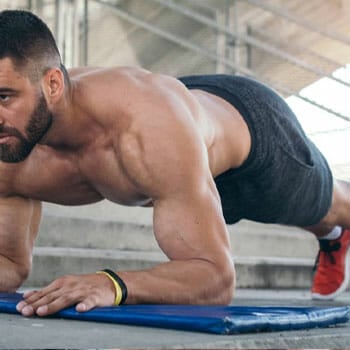
Curious about Anthony Joshua’s workout plan details? Here’s an example of exercises he typically does:
- Planks - 4 sets, 30 reps, 20-second rest
Tip: Rest on your forearms instead of your hands without letting your hips sag.
- Barbell squats - 4 sets, 6 reps, 2-minute rest
Tip: Avoid resting a barbell on your neck. Hold it across your upper back with an overhand grip and strive for a deeper squat.
- Step up with a barbell - 4 sets, 6 reps, 2-minute rest
- Glute raises (on the bench) - 4 sets, 8 reps, 2-minute rest
- Burpees - 3 sets, 10 reps, 2-minute rest
- Clap press-ups - 1 set, 10 reps, rest until the next session
- Rotational medicine ball wall toss - 3 sets, 10 reps (each side), 30 to 60 seconds between sets rest
Tip: Engage your core and use your hips to generate power. Avoid using just your arms; the rotation should come from your torso.
- Pull-ups - 3 sets, 8-10 reps, 60 seconds rest
Tip: Engage your lats and pull your shoulder blades together. Avoid using momentum; each rep should be controlled.
- Dumbbell bicep curls - 3 sets, 10-12 reps, 60 seconds rest
Tip: Keep your elbows close to your body and avoid swinging the dumbbells. Focus on squeezing the biceps at the top of the movement.
- Leg raises - 3 sets, 12-15 reps, 60 seconds rest
Tip: Keep your lower back pressed against the floor and avoid using momentum. Engage your core throughout the movement.
Related: Dallas McCarver Workout and Diet
Based on my firsthand experience following Anthony Joshua on social media, he consistently showcases his muscle-building journey and preparation for the boxing ring.
You can also access 50+ exercise videos and get a free PDF workout guide on his website.
After conducting experiments with it, I can vouch for Anthony's advice: setting realistic goals with deadlines and then working hard to achieve them.

What Supplements Does He Take?

Anthony Joshua takes three main supplements: whey protein powder, a multivitamin, and a post-workout formula.
Joshua claims that he takes them alongside a healthy, balanced diet and exercise plan.
The chances are that he takes some protein bars and other multivitamins, pre/post-workout, or protein supplement options that can also easily fit into his busy training schedule, depending on his specific goals.
Anyway, this professional heavyweight boxer prioritizes sticking to a healthy diet, working out hard, and getting enough rest over taking supplements.
Related: What Are The Best Supplements for Boxers?
What Does AJ Eat in a Day?

AJ's daily diet is packed with fresh, nutrient-rich foods. He eats fresh fruits, seasonal organic vegetables (in salads, smoothies, or even canned), eggs, various meats like chicken and fish, and rice.
A Sports Medicine study highlights how dehydration affects endurance and strength [1]. So, AJ drinks lots of water and fruit juices to stay hydrated.
At 6’6”, his calorie needs are high, matching his intense 30-hour weekly training. His nutritionist tailors his diet to his changing needs pre-fight.
"We aim to give him 4,000 to 5,000 calories a day made up of 2 to 2.2 grams per kilogram of bodyweight of protein, and 4 to 8 grams of carbohydrate depending on what phase of camp we are in."
- AJ
Quality matters in his diet – no junk food, as emphasized by his nutritionist, Mark Ellison. Pre-fight, Joshua switches to vegan meals.
Breakfast
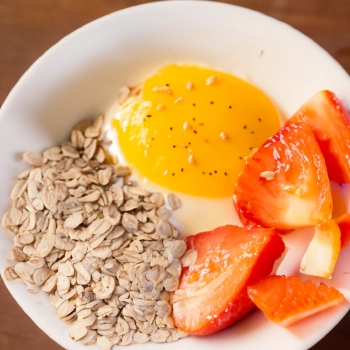
The London 2012 Olympics gold medalist, AJ, has two breakfasts during fight training camps - one early before his morning session (sometimes he trains fasting) and another after.
He begins his day with water and fruit. The first breakfast often includes porridge oats, milk, or a big smoothie with Greek yogurt.
His second breakfast might have two slices of wholemeal bread, up to five eggs, spinach, 500ml apple juice, avocado, smoked salmon, and a banana.
Lunch
Joshua’s typical lunch may include two large chicken breasts, salmon or lamb fillets with a bean salad or other green vegetables, and rice, wholemeal pasta, or baked sweet potato.
Dinner

For dinner, he often eats two large fresh salmon fillets or chicken (skin removed) with mixed vegetables and brown rice, mashed potatoes with butter.
Or white pitta bread, plus orange juice or fresh oranges for dessert.
He sometimes also eats Nigerian dishes like pounded yam, egusi, and eba.
Supper
For supper just before bedtime, Joshua usually eats natural Greek yogurt with honey and nuts.
Snacks
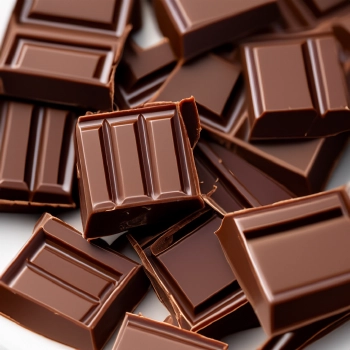
Joshua typically snacks after his second training session, when he takes muesli, fruit salad, Greek yogurt, some bananas, or a recovery shake providing a good source of proteins and carbs he needs.
Cheat Meal
Surprised or not, this fighter also has cravings and cheat meals like other people.
His favorite is chocolate, but he tries to play it smart when it comes to treating his sweet tooth and pick natural honey or gluten-free sweets without sugar.
FAQs
How Often Does Anthony Joshua Train?
Anthony Joshua trains for over 13 hours daily, four times a day, five times a week.
How Much Can Anthony Joshua Lift With His Teeth?
Anthony Joshua lifts 20kg with his teeth only.
Does Anthony Joshua Eat Meat?
Yes, Anthony Joshua eats meat but avoids it before fights, choosing vegan meals instead.
How Many Calories a Day Does Anthony Joshua Eat?
Anthony Joshua eats between 4,000 and 5,500 calories a day.
References:
- https://pubmed.ncbi.nlm.nih.gov/17887814/
About The Author
You May Also Like
